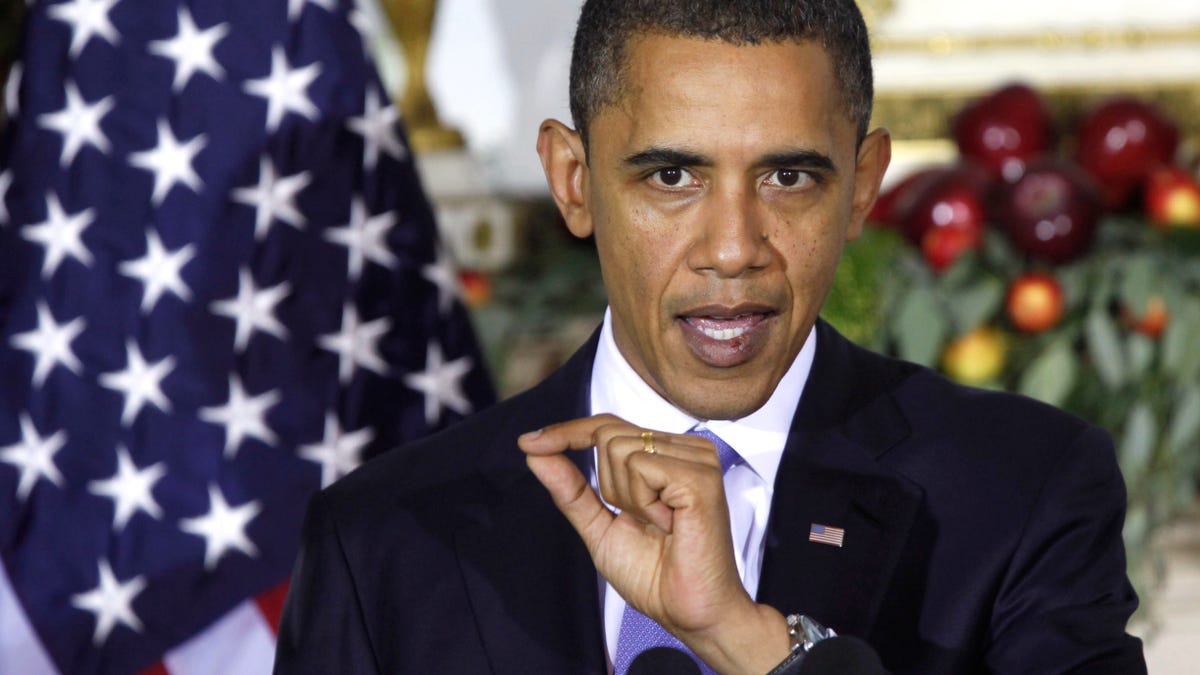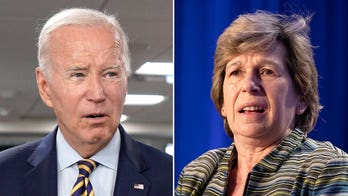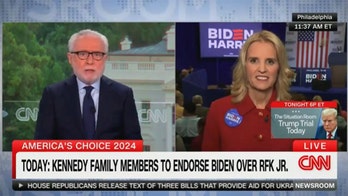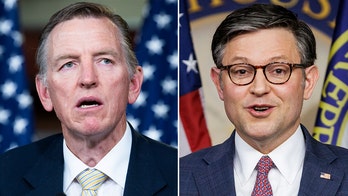
Dec. 2: Obama speaks at the Blair House across from the White House. (AP) (AP2010)
President Obama said Saturday called a newly forged trade deal with South Korea "a win-win" for both countries and a big victory for American farmers and ranchers, the aerospace and electronics industries and U.S. automakers.
Obama said the deal will boost U.S. annual exports of automobile, agriculture products and other goods and services by $11 billion.
With the latest jobs report showing disappointing results, Obama said the trade deal will help create jobs and aid the U.S. economy.
Obama said he didn't sign the deal last month when he was in Seoul because "it wasn't good enough for America, wasn't good enough for American workers."
This deal, he said, is the best one for America.
South Korean President Lee Myung-bak praised the deal as bringing huge economic benefits to both countries and further boosting the two nations' alliance.
"The accord is significant because it lays the groundwork for a 'win-win' relationship by reflecting the national interests of Korea and the United States in a balanced manner," Lee said in a statement posted on the presidential website.
The pact would be the largest since the North American Free Trade Agreement with Canada and Mexico in 1994.
The White House says the Korean agreement could put as many as 70,000 Americans to work, welcome news with the latest unemployment figures showing nearly stagnant job growth. Exports of U.S. goods to South Korea could soar to $10 billion, a prospect that cheered the U.S. Chamber of Commerce as well as some Republicans. The deal is subject to congressional approval.
But the deal drew instant criticism from the liberal group Public Citizen, which said it would let Obama "take ownership of another Bush NAFTA-style trade deal that would simultaneously favor their job offshoring agenda and put [his] re-election in peril."
The group said past U.S. free trade agreements have barely increased export growth and fear that same result with the Korean agreement.
Republican Rep. Dave Camp of Michigan said he has been working with the administration on the deal and was pleased upon its conclusion.
"Not only will this agreement ensure that job-creating U.S. exports are competitive in this vital market, it will -- along with other ongoing trade talks in the region -- provide us with a critical counterbalance to China's growing influence," Camp said in a written statement.
After a week of marathon negotiations, representatives from both countries broke through a stalemate Friday morning on issues related to the automobile industry, clearing the way for closer economic ties with fast-expanding South Korea.
South Korea would allow the U.S. to lift a 2.5 percent tariff on Korean cars in five years, instead of cutting the tariff immediately. The agreement would let each U.S. automaker export 25,000 cars to South Korea as long as they met U.S. safety standards. The U.S. could continue a 25 percent tariff on trucks for eight years and phase it out by the 10th year. South Korea would be required to eliminate its 10 percent tariff on U.S. trucks immediately.
The White House had hoped for a deal last month during Obama's trip to Seoul for an economic summit, but both countries couldn't reach a compromise on autos and beef. U.S. Trade Representative Ron Kirk and Korean Trade Minister Kim Jong-hoon resumed negotiations outside Washington this week.
For Lee, the agreement comes amid harsh criticism at home that his response to a deadly artillery attack last month by North Korea on a South Korean island has been weak and indecisive. His government, which once had said it would not renegotiate the trade deal, could face harsh criticism at home if the compromises on autos are seen as a capitulation.
The agreement did not address issues with the beef trade.
The U.S. had sought greater access to the beef market in South Korea, which restricts imports of older U.S. meat. A senior administration official said discussions on beef were continuing. The official insisted on anonymity to discuss private negotiations.
The overall agreement would eliminate tariffs on more than 95 percent of industrial and consumer goods within five years. The U.S. International Trade Commission estimated that would increase exports of U.S. goods by at least $10 billion. The deal would also open up South Korea's vast $560 billion services markets to U.S. companies.
Lee expressed hope for a quick ratification of the deal by the legislatures of the two countries. Obama administration officials offered no timeline for ratification on Capitol Hill.
The Associated Press contributed to this report.




